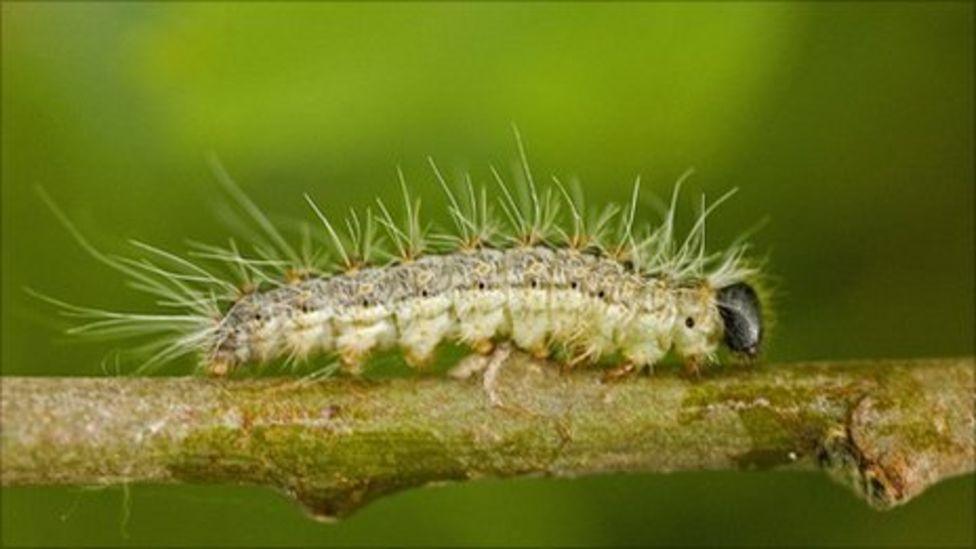Public urged to report toxic caterpillar sightings

At a glance
The public are urged to report sightings of the oak processionary moth caterpillar
The insects can negatively affect oak trees, the leaves of which make up their diet
Surrey is among the worst affected areas due to its high density of woodland, experts say
- Published
The Forestry Commission has urged the public to report sightings of a toxic caterpillar amid signs it has spread to counties in south-east England.
Oak processionary moth caterpillars, which can be a hazard to human and animal health, were first identified in London in 2006.
Forestry Commission officials say the greatest risk period for the tree pest is between June and August when the species feeds before turning into moths.
The pest also feeds on the leaves of several species of oak trees, which can cause the trees to lose their leaves and limit their growth.
More on oak processionary moths
Toxic caterpillar plague spreads across Europe
- Published9 July 2019
Invasion of caterpillars closes part of town
- Published20 May 2018
Londoners warned over toxic caterpillars
- Published28 April 2018
A government programme to manage the moth has been in place since 2012, and in March the Forestry Commission announced an update to zones and boundaries to manage its spread.
Experts said Surrey is among the worst-affected by the pests due to it being the most wooded county in England.
"There's a lot of oak trees for caterpillars and they feed just on oak trees," said Andrew Hoppit, from the commission.
Speaking to BBC Radio Surrey, Mr Hoppit said sightings should be reported to the website TreeAlert or to the commission.
He urged the public not to touch the caterpillars. If contact is made, he recommends speaking to a pharmacist.
The caterpillars are a silver/grey colour with black heads and long white hairs which contain proteins which can cause itchy rashes, and irritations to the eye and throat.
They can be identified by a dark stripe down their back and can grow up to 2cm in length.
Its nests are typically dome or teardrop-shaped, averaging the size of a tennis ball, and are white when fresh, but soon become discoloured and brown.
Follow BBC South East on Facebook, external, on Twitter, external, and on Instagram., external Send your story ideas to southeasttoday@bbc.co.uk.